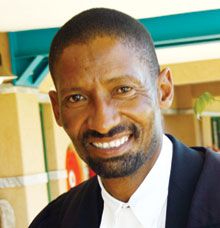Liquor traders move against 'police harassment'
LEKOPANYE MOOKETSI
Correspondent
| Tuesday July 29, 2008 00:00


The association wants the police to be interdicted from harassing liquor traders about their operating hours. The court has postponed the case to give the applicants time to file their heads of argument.
The applicants also want the court to make a ruling that the applicants' licences are valid and that the continued disruption of their businesses is unlawful.
The case follows the implementation of new liquor regulations, reducing the operating hours of liquor establishments like nightclubs and bars in April.
But nightclub owners successfully took the government to court insisting that they should be allowed to operate in accordance with their old licences until they expired. The government subsequently appealed against the High Court decision, but the Court of Appeal upheld the lower court's judgment last week.
After the association's lawyers rushed to court to seek a restraining order last Sunday, court officials ruled the case would be heard on Monday following a meeting between the two parties.
But LTA claims the police continue to harass its members despite this ruling.
The Deputy Attorney General, Abraham Keetshabe (for the state) has opposed the urgency of the association's application, saying it should be dismissed with costs.
He argued that the applicants had failed to submit reasons for the urgency and to state why they should not be accorded a redress at a hearing in due course instead of an urgent hearing. No reason, Keetshabe said, had been raised why the petition was not filed in a normal route.
'The court has not been furnished with reasons why it should sit over the weekend,' the senior government attorney said, arguing that an urgent hearing was a privilege that should not be abused: the filing of a mere certificate of urgency was not a guarantee that the matter was urgent.
'There has to be an affidavit confirming urgency,' Keetshabe said. 'The certificate of urgency and the filing of records is grossly inadequate. The urgency should not only be established but be disclosed in a matter of this kind. We ought to emphasise on prejudice. If no prejudice is alleged, there is no urgency.'
He said the applicants' certificate of urgency and founding affidavit existed in a vacuum and the founding affidavit was vague. 'It is our submission that this application needs to be struck off,' Keetshabe pressed on. 'The mandatory rules of the court have not been followed.'
He told the court that even if the matter was urgent, the time that the respondents were given was unreasonable. In his view, the respondents were not given sufficient time to prepare their case.
'The respondent was served on Sunday,' Keetshabe said. 'Luckily the respondents got wind (of the) matter. The Attorney General was not given notice of the intended application ... We were not given a chance to respond. It is our submission that the matter is wrong before court.'
Keetshabe submitted that the applicants, who are officials of the association did not have a legal standing in the case; officials of the association could only sue for and on behalf of the organisation, but not for businesses because the association did not exist to trade in liquor.
'Their constitution does not state that they can trade in liquor,' he said. 'The association has not been licensed to trade in liquor. It is not in court as a party to the issues raised. We simply do not have correct applicants before court.'
He said the persons who are wronged are the liquor traders. 'We are saying there are shortcomings on the papers before court. The papers are so weak in the sense that the wrong party is before court. The matter needs to be dismissed.'
The lawyer for the applicants, Yul Moncho, could not respond as Judge Gabriel Rwelengera wanted him to furnish the court with certain documents first.
